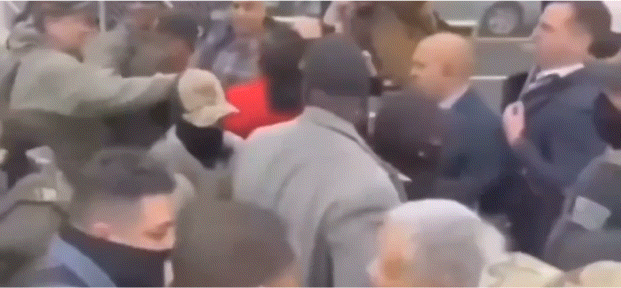Acting US Attorney for the District of New Jersey, Alina Habba, announced on Monday that Representative LaMonica McIver (D-NJ) has been formally charged with "assaulting, impeding, and interfering with law enforcement." The charges stem from a contentious episode earlier this month at Delaney Hall, an Immigration and Customs Enforcement (ICE) detention center in New Jersey.
The confrontation took place when McIver, along with other Democratic legislators, attempted to inspect the ICE facility. Body camera footage appears to show McIver forcefully pushing past security staff to enter the facility's gates. This incident led to the arrest of Newark Mayor Ras Baraka.
Habba emphasized her commitment to upholding the law, stating, "I understand the responsibility that comes with my position, and I will work diligently to uphold the law and deliver justice to the people of New Jersey." In a move suggesting a focus on the more severe allegations against McIver, authorities have resolved to drop a misdemeanor trespass charge against Mayor Baraka, inviting him instead to tour Delaney Hall with Habba.
The allegations against McIver highlight tension between the right to legislative oversight and the adherence to law enforcement protocols. While Habba's office reportedly sought to settle the matter without resorting to criminal charges, McIver declined the opportunity for resolution. In response to the charges, McIver contested the portrayal of events, framing the charges as "purely political" and aimed at hindering legislative oversight.
The incident has garnered attention from Congressional leadership, with House Speaker Mike Johnson hinting at possible disciplinary actions against the Democratic Representatives involved. The situation draws parallels to a case in Wisconsin, where a judge faces indictment for obstructing immigration enforcement, illustrating the potential legal consequences for such actions.
As the legal process unfolds, the differing narratives of the event will be scrutinized, with McIver and her colleagues asserting their oversight role and federal authorities upholding law enforcement integrity. The situation underscores the complex interplay between governmental powers and the rule of law.





